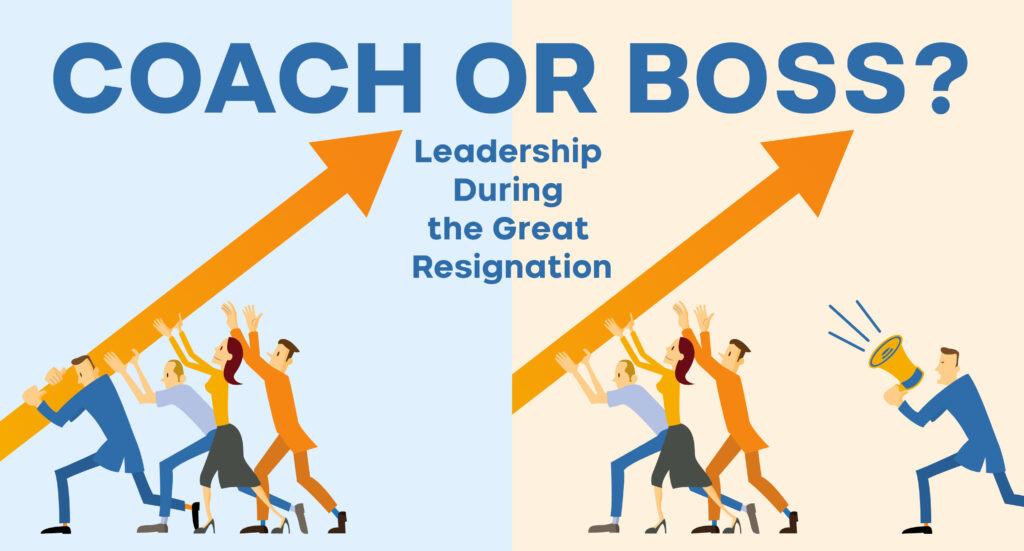The Great Resignation has turned into many things: a labour movement, a shift toward remote work, and a statement against toxic workplaces. Perhaps you joined the Great Resignation, leaving your 9-5 to pursue your dreams of entrepreneurship.
Or perhaps you’re a current business owner wondering why it’s so hard to keep employees.
In any situation, the Great Resignation has led many people to reexamine their career choices. And what it really comes down to is how well they feel aligned with their work.
As the saying goes, people leave people, not jobs. You may have done so, too. Now, as an entrepreneur, you want the right people for your business — and you want them to stick around!
My 5 Ps toward entrepreneurial freedom are Process, Product, Profit, People, and Purpose. The last two are closely related. When your people align with your purpose, they’re more likely to stay on your team. And I like the word “team” because as a people-focused business owner, you’re essentially their coach.
So, how can you coach your employees toward success? And during the Great Resignation, how can you avoid becoming a workplace that people want to leave?
People Leave People, Not Jobs

It bears repeating. Even if people enjoy the work itself, even if their skills match it perfectly, they won’t be happy if they feel unsafe or abused. The recent labour rights movement has led people to raise their workplace standards.
So, a toxic work environment won’t retain people for long — no matter how good the pay is. And even if workers don’t find it “toxic” per se, they don’t want to work with mean or manipulative bosses or coworkers.
The comedy film Horrible Bosses illustrates this concept. People can be brilliantly talented and earn good money. But one can only tolerate bad managers for so long.
The titular characters are extreme examples, for sure. However, there’s a reason they’re called “bosses” and not “leaders.”
As I’ve discussed before, bosses demand that employees do certain tasks. They rely on persuasion or delegation — or even fear — to ensure things get done.
Usually, they don’t bother sharing the business’s goals or mission (Purpose in the 5 Ps). In their view, employees should do things “because I said so.” They must convince others to take on responsibilities.
By contrast, leaders inspire their teams to perform their tasks. They motivate them through encouragement. Employees want to leverage their skills because they understand the Purpose and why it matters.
As a result, the team feels a sense of ownership, not just responsibility. They don’t need convincing.
Instead, they get coaching.
What’s your leadership style? Even if you’re not a horrible boss (I’m sure you’re not!) your people may not feel as motivated or fulfilled if you’re convincing them vs. coaching them.
People Who Need People

…are the luckiest people in the world! This famous song lyric offers a great lesson for entrepreneurs.
You don’t just want great employees for your business. You need them. It’s so much easier to grow your enterprise with a motivated, talented team by your side!
Think of it this way. When everything falls at your feet, you spend all your time picking up the pieces. That saps all your energy — and the freedom you desired as an entrepreneur.
But when your people are just as excited about your business’s mission as you are, they’ll go above and beyond. They may even bring some new ideas to the table. Your team is inspired to leverage their skills, which creates more efficiency.
In my 5 Ps framework, the right People support a cleaner Process. And that, in turn, boosts your Profit. Everything lines up when you clearly express your Purpose.
That helps your team understands their role. As I always say, clarity leads to competence which leads to confidence. If you want your team to thrive, give them a chance to know your business.
In other words, coach them! Let them harness their skills and put them into action toward a shared goal. Get them pumped, and you’re all more likely to win.
Turning Your People into Champions

A coach is a leader who helps others become the best version of themselves. Great coaches encourage introspection and self-discovery. This approach reveals talents that drive success.
So, if you imagine your employees as a team, your role as “Coach” is to help them unlock those talents.
We’ve all seen the sports movies in which a great coach helps a beaten-down team break new ground. They use tough love rather than toughness, motivation rather than manipulation.
As a business owner, your leadership takes more than inspiring speeches. When you coach your people, you show them how to leverage their skills. That’s the difference between demanding their compliance and gaining their respect.
The Great Resignation has proven that people want a sense of purpose. They want to feel like their work comes with reward, not punishment. Thus, they’ll leave any situation where the stress or apathy outweighs their fulfillment.
To feel fulfilled and motivated, your employees must understand your business’s purpose.
In other words, you can’t get your team to the championship game simply by insisting upon it.
You must coach them to take ownership of their talents so they can work together to become champions!
Wrapping Up

Are you convincing your team to perform, or coaching them to perform their best? It all depends on how well you communicate your Purpose to your People.
Amidst the Great Resignation, you must help your employees feel empowered. Telling them to do things “because I said so” just won’t accomplish that. But acknowledging their talents and encouraging them to seek the championship trophy?
It absolutely will.
To further explore the concept of convincing vs. coaching, tune into this episode of the Business Owner Breakthrough on the Simplifying Entrepreneurship podcast.




0 Comments